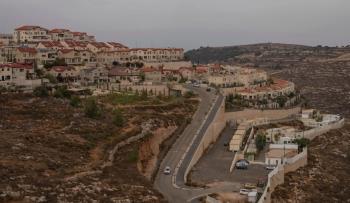Alwaght- Although
military expenditure has experienced slight decrease on a global scale; there
are yet some countries whose defense
budget is increasing. For example, the Ukraine crisis has set an alarm for
Russia neighbors.
According to
Stockholm International Peace Research Institute (SIPRI), the world military
expenditure exceeded 8/1 trillion dollars in 2014 which, in comparison with that of 2013, was
decreased about 0/4.
This institute
examines the world military expenditures and releases its changes report
annually. The report of 2014 was released on Monday (26 April).
The relative decline
in America's
defense budget and
frugal polices of majority of EU states have been reported as the main reason
of decreasing the world military expenditures in 2014. Accordingly, military
expenditures of Latin America have been remained relatively constant; while the defense budget in the West
Asia, East Europe, Africa and Asia were increased.
SIPRI regulates
its annual report based on information available for public; for example based
on public budget of countries and official figures declared for military
budget.
Outcome of
Ukraine crisis
Sam Perlo
Freedman, member of regulator boards of SIPRI's newly released report, said:
“The effect of Ukraine crisis on Russia neighbors is visible in their defensive
budgets. Poland has accelerated modernization of its defensive system. Baltic
States [Estonia, Latvia and Lithuania] increased their military budget in 2014 and
are going to increase it in 2015, too”.
Reports on
Ukraine crisis
Ian Grebe,
German BICC expert, is of the opinion that no hasty analysis should be conducted
based on the current information. BICC also pursues the world armies changes.
He believes that there is no direct relationship between modernization of
Russia’s neighbors’ defensive system and Moscow's
policies, but this is part of the general program of most countries for
updating the military forces.
Growth in Sweden
defense preparedness
In the late 2014, Sweden parliament
passed the law of an increase in defensive system for 2015. Preparedness for the possible outbreak of the Ukrainian crisis is declared as one of
reasons of that increase. In addition, although Sweden is not a NATO-member
state, it has continuously expanded cooperation with NATO, Baltic States, and
East Europe in recent years, SIPRI reports.
Regarding
to the SIPRI report, NATO and EU, which are far from Russia, have yet continued
their frugal polices. After Ukraine crisis, NATO and EU reviewed the Europe
security conditions and Russia’s potential threat for Baltic States.
Russia
conditions
Moscow that is
engaged in Ukraine crisis is faced with barriers for its military modernization
due to sanctions imposed by EU and US.
Moreover, according
to SIPRI experts, Russia deals with another problem that can hinder its
production of modern military equipments, that is increase in the average age of military engineers.
Furthermore,
Moscow may not afford its military modernization as it wish. SIPRI report predicts
that Moscow has to cut its
military budget up to 5% in 2015 due to falling oil and gas price during
last year as well as the west sanctions on the country.
The oil-rich countries’
military budget
According to SIPRI
report, there is a clear relationship between oil revenues and the military budget. Oman, Saudi Arabia, South Sudan, Chad and Libya which are major customers
of Arms export oil. For example, Saudi Arabia increased its defensive
budget up to 17% reaching 80/8 billion dollars.
Among the 20
main arms buyers, just Lebanon,
Israeli regime and Namibia are regarded as democratic countries. In SIPRIS experts’
opinion, the non-democratic countries that don't explain their nation on military
budget invest heavily to keep their own security and equip their loyal
forces.



























